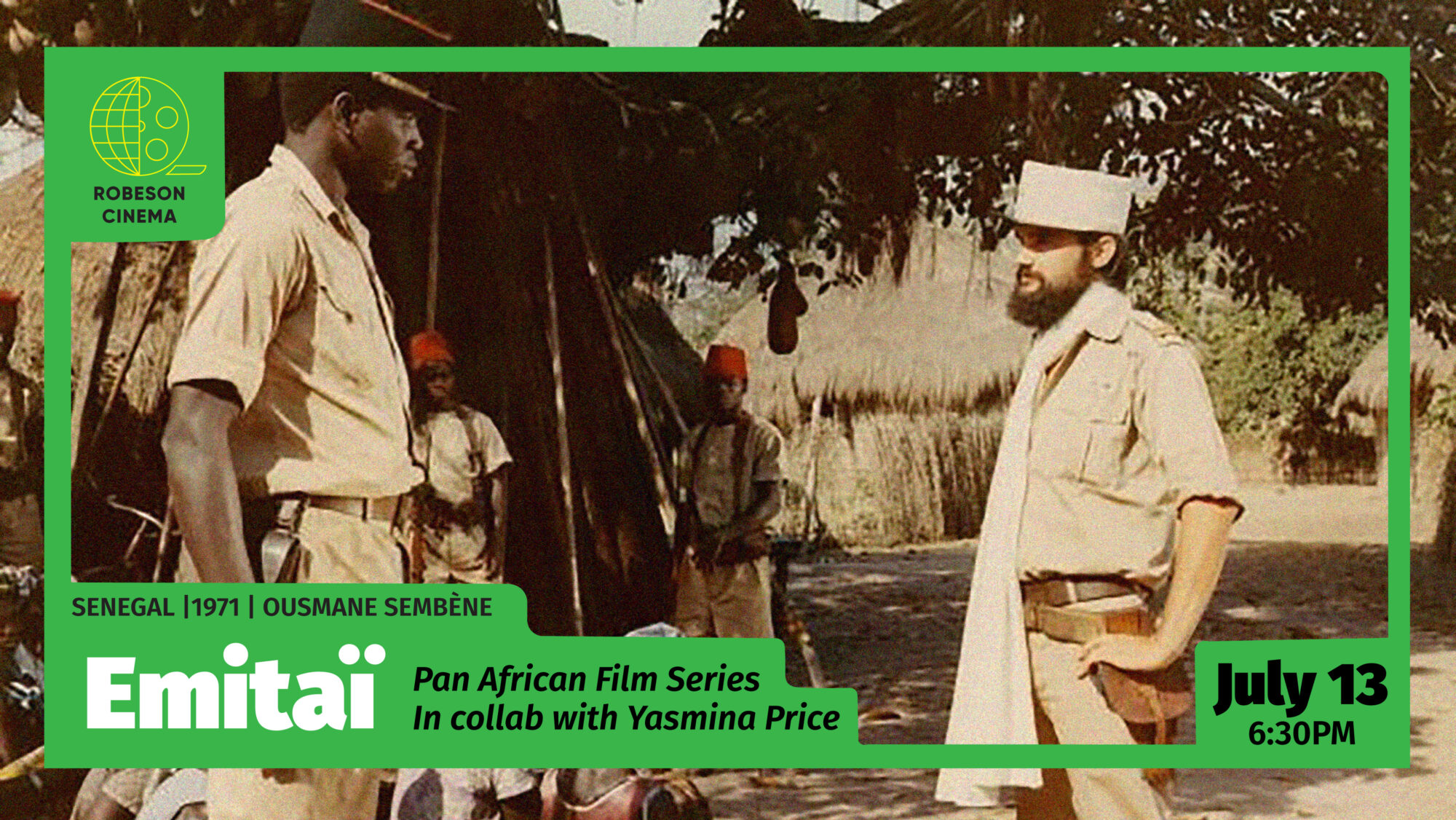

“Thus, it may be seen that if imperialist domination has the vital need to practice cultural oppression, national liberation is necessarily an act of culture.” (Amílcar Cabral, 1970)
African Cinema was born as an act of defiance. From the arrival of photographic and cinematic technologies on the continent, they were weaponized as one of many mechanisms of regulation and domination. African Cinema was to be a revolutionary weapon, playing a role in an emancipatory reorganization of the continent on political, economic and cultural terms. This film series takes inspiration from The People’s Forum’s Revolutionary Summer School “Pan Africanism: The Struggle for Our Future.” The films range from the most overt forms of insurrection, uprising and rebellion to more quiet, subtle, intimate forms of politically cultural warfare. Covering the 1960s to 1990s, the series is concentrated on the first two decades in this bracket—as both the most prolific period of revolutionary African filmmaking and the one most deeply anchored in a Pan African project. This film series has been coordinated as a collaboration with The People’s Forum and Yasmina Price, writer and film programmer.
During WWII, the French army drafted soldiers and commandeered supplies from even the most remote African villages. Emitai is the story of the silent resistance of the Diola tribe to such requisitions. While the elders pray to Emitai, the God of Thunder, the women, more pragmatically, are hiding the rice demanded by the French troops. Sembène makes it clear though, that what triggers the French gendarmes’ anger is less of the concealing of supplies than the villagers’ firm resolve to carry out a funeral ceremony despite military orders.
1971 | Senegal | Ousmane Sembène | 101
This is a free educational program, however, in order to maintain a safe capacity level, we ask that you get a $6 solidarity ticket to reserve your participation and to sustain our educational programming.